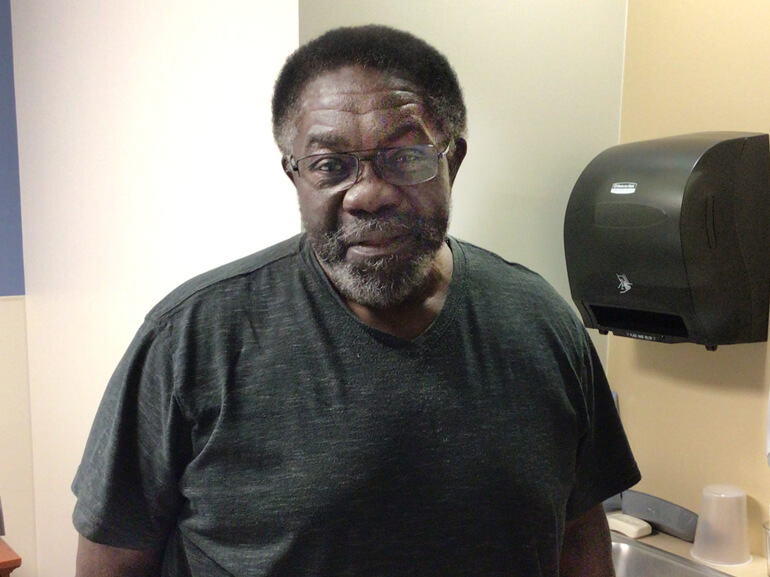Al's Story

Al Dexter, a 68-year-old retired Georgia Pacific employee, enjoyed working out and had been to the gym earlier in the day. That evening, he was resting on his couch when he started feeling odd. Barbara, his wife, noticed something wasn’t right and called 911. Al was transported by ambulance to a local hospital where it was determined that he had suffered a stroke. He received medication and was transferred to Tulane Hospital in New Orleans, LA where he spent 17 days recovering and participating in physical therapy.
When his medical team recommended inpatient therapy, Al and Barbara choose Northshore Rehabilitation Hospital based on the recommendation of Al’s brother who had been a patient there previously.
When Al arrived at the rehabilitation hospital, he had difficulty with his speech and walking and could not perform self-care tasks. He immediately set a goal to improve his speech, strengthen his right side and regain independence in self-care tasks.
When Al started physical therapy, he could walk 40 feet with the assistance of two staff members but had significant difficulty lifting his right foot when walking. Visual challenges on his right side also made navigating turns difficult. Physical therapy started Al on standing balance activities and practicing steps in the parallel bars. He then transitioned to walking in open space with a rolling walker with a two-person assist. He also increased his strength with a stepper machine. At discharge, Al was able to walk 500 feet with minimal assistance for balance and navigating the hallways.
In occupational therapy, Al worked on managing his self-care due to weakness in his right arm, visual deficits and motor coordination issues. His therapy team used fine motor and visual tasks such as peg-in-hole activities and puzzling to retrain his eyes to focus. They also worked on strengthening his right side using weights and the therapy bike. While rebuilding strength and coordination, the occupational therapy team also worked with Al to practice dressing, feeding, getting in and out of bed and showering. At the conclusion of his time in occupational therapy, Al was able to perform all his own self-care with just supervision.
As a result of his stroke, Al was also experiencing speech deficits, verbal comprehension difficulties and word finding issues. He worked diligently every day with speech therapy to improve his communication. Speech therapy used word finding exercises, repetition of word concepts and writing tasks to retrain the speech and language areas of his brain. When he arrived at Northshore Rehabilitation Hospital, Al was only comprehending about 20 percent of speech and only able to verbalize about 30 percent of speech clearly. By discharge, he was achieved an 80 to 90 percent comprehension rate and his speech was 80 percent accurate.
Al said having his family at the hospital was instrumental in his recovery and he couldn’t wait to return home to relax and visit with everyone. He expressed his gratitude to his family, all the staff at Northshore Rehabilitation Hospital and most importantly, his faith in God, for helping him in his successful recovery. He looks forward to resuming his volunteer work at his church.
Reflecting on his rehabilitation experience, Al offered this advice to others on their own recovery journey: “Slow down and take time for yourself.” He expressed his appreciation for the team at Northshore Rehabilitation Hospital, saying, “Everyone treated me really well and was very encouraging.”